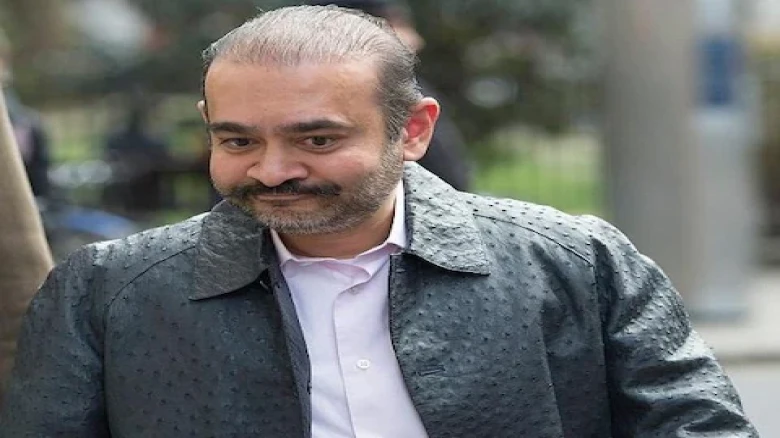The CBI cases now include the additional allegations of "causing the disappearance of evidence" and "criminal intimidation to cause death" by intimidating witnesses.
Digital Desk: The Punjab National Bank (PNB) loan scandal case includes charges of fraud and money laundering totaling an estimated USD 2 billion. The High Court in London ordered diamond dealer Nirav Modi's extradition to India on Wednesday.
The judgment was given by Lord Justice Jeremy Stuart-Smith and Justice Robert Jay, who presided over the appeal hearing earlier this year.
The 51-year-old businessman was given permission to file an appeal against District Judge Sam Goozee's Westminster Magistrates' Court decision in favour of extradition in February while he was still incarcerated at Wandsworth Prison in south-east London.
To hold a hearing about whether it would be "unjust or oppressive" to extradite Modi given his mental state, the High Court granted leave to appeal on two grounds: under Article 3 of the European Convention of Human Rights (ECHR) and Section 91 of the Extradition Act 2003, which also dealt with mental illness.
We are far from convinced that Mr. Modi's mental condition and the risk of suicide are such that it would be either unjust or oppressive to extradite him, the decision reads. "Pulling these various strands together and weighing them in the balance so as to reach an overall evaluative judgment on the question raised by Section 91? It states
The judges stated, "It may be that the main benefit of the appeal has been to obtain the extensive further assurances [from the Indian government] that we have identified in the course of this judgment, rendering the position clear to Mr. Modi's advantage and the District Judge's decision supportable."
Modi can appeal the High Court's ruling to the Supreme Court within 14 days of the High Court's decision, even though he lost this appeal hearing, on a legal issue of public importance. The High Court must certify that the matter contains a legal issue of general public concern in order for an appeal to be brought to the Supreme Court, therefore this entails a high bar.
The diamantaire could yet request a so-called Rule 39 injunction from the European Court of Human Rights after having exhausted all legal options in the UK courts (ECHR). Therefore, there is still work to be done before he can be returned to India, where he will be detained in Mumbai's Arthur Road Jail and put on trial for fraud and money laundering that is estimated to have cost USD 2 billion in the Punjab National Bank (PNB) loan scam case.
He has not yet made any comments regarding his intentions to challenge the High Court's ruling. Since his imprisonment in March 2019, Modi has been residing at Wandsworth Prison in southwest London.
The CBI case concerns a significant fraud against PNB that involved acquiring letters of undertaking (LoUs) or loan agreements fraudulently, while the ED case concerns the laundering of the scheme's proceeds. Nirav is the focus of both sets of criminal proceedings.
The CBI cases now include the additional allegations of "causing the disappearance of evidence" and "criminal intimidation to cause death" by intimidating witnesses.
A special court had previously given the ED permission to seize 39 of the fugitive businessman's properties, totaling Rs 500 crore. In June 2020, the court ordered the ED to seize Modi's possessions as part of the first confiscation order issued in accordance with the Fugitive Economic Offenders (FEO) Act, 2018. Property secured to PNB and a group of banks by a mortgage, hypothecation, or a personal guarantee was exempt, nevertheless.

Leave A Comment